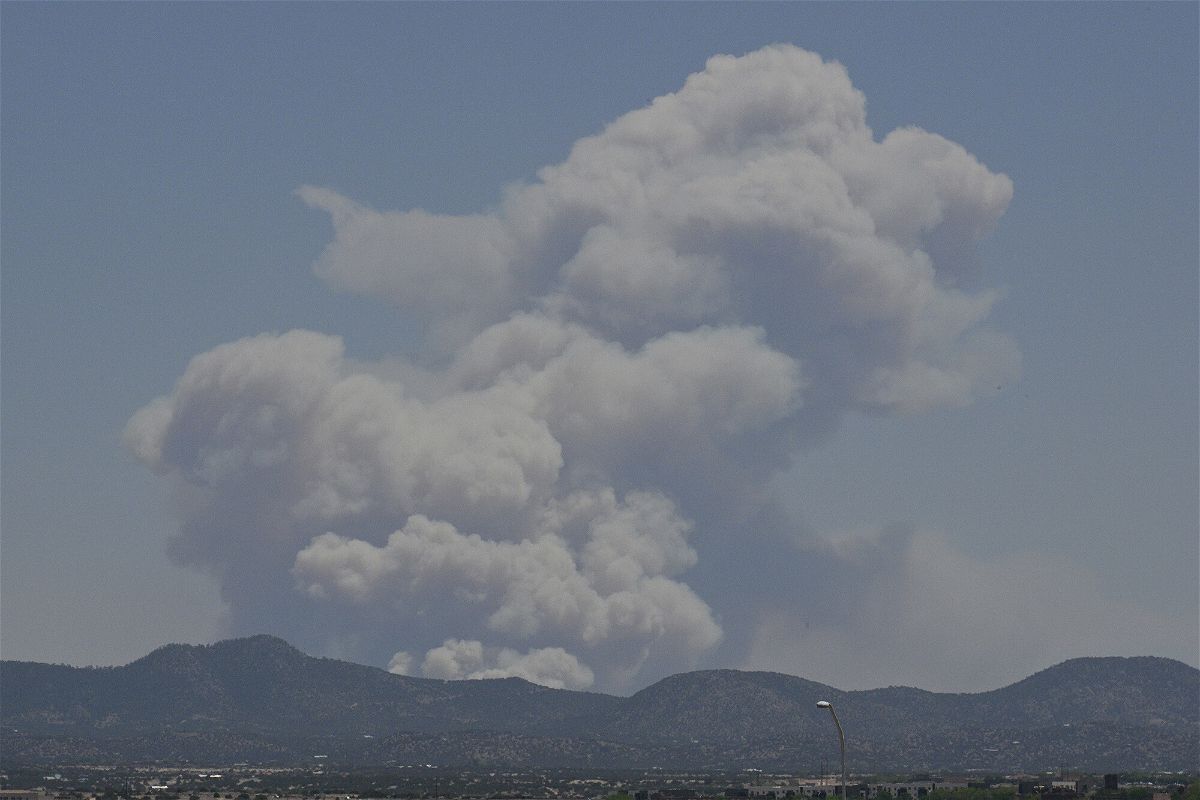Calf Canyon/Hermits Peak Fire becomes largest in New Mexico history at nearly 300,000 acres

The Calf Canyon/Hermits Peak wildfire is now the largest in New Mexico's history.
By Jennifer Henderson and Jon Passantino, CNN
The Calf Canyon/Hermits Peak Fire has become the largest fire in New Mexico history, burning 298,060 acres, officials said.
The blaze, burning east of Santa Fe, is 27% contained with 2,015 personnel working to contain the fire, officials said Monday on a Facebook page providing updates on the effort to quell it.
The Calf Canyon Fire started April 19 and later combined with the Hermits Peak Fire, which has been burning for more than a month, to become the nation’s largest wildfire this year. It has destroyed hundreds of homes and grown to a perimeter of over 500 miles.
The wildfire, which has threatened the city of Las Vegas, New Mexico, has prompted President Joe Biden to declare a major disaster. The cause of the fire remains under investigation.
Since the fire began, about 26,000 people have been forced to evacuate, with more expected to face evacuations later this week, according to the Fire South Zone Incident Management Team. More than 10,000 homes have been directly impacted by the blaze, team spokesperson Andy Gray said.
Currently, there are 3,820 homes under mandatory evacuation orders in the San Miguel, Mora, Taos and Colfax counties, New Mexico Emergency Operation Center spokesman Travis Martinez told CNN. An additional 56,000 homes are under a voluntary evacuation order, he said.
A red-flag warning is in effect for the area surrounding the fire, with near-critical fire weather conditions, dry lightning, and shifting winds expected amid ongoing dry conditions.
“Dry lightning with sudden and strong erratic wind shifts from any nearby storm” could lead to rapid spreading or shifting of the fire lines, the National Weather Service (NWS) office in Albuquerque warned.
Winds from storm outflows could gust as high as 60 mph, in addition to a level 1 of 5 risk for damaging thunderstorm winds with a few of the storms.
“Any new or ongoing fires will be very hard to control,” the warning said.
The cities of Albuquerque, Santa Fe and Roswell in New Mexico all have the potential to tie or break record highs this week, making weather conditions at the Calf Canyon/Hermits Peak wildfire even more dire.
Exacerbating the problem is the mega-drought the area has been suffering for years that’s dried out vegetation and turned it into ready fuel for any fires that start.
The dry conditions and blowing winds result in a high risk of the current fire spreading, according to Gray. A mix of the historic drought and 2% relative humidity have made the ground extremely dry. Embers blowing as far as 2.5 miles from the fire’s perimeter have a 98-100% probability of ignition, he said.
According to National Interagency Fire Center data, this year has seen more fires nationwide — 24,762 — than any previous year tracked in the last decade. It ranks fourth in the most acres burned to date.
The previous largest fire in New Mexico was the Whitewater-Baldy Fire in 2012 that burned 297,845 acres, the Geographic Area Coordination Centers report.
So far this year, about 480,000 acres have been scorched in New Mexico — more than was burned in the previous two years combined, CNN meteorologist Brandon Miller said. That number is almost double the yearly average of 260,000 acres.
It’s not just the numbers that are frightening: The fire season goes into July, with fire activity across the state typically peaking in June.
The-CNN-Wire
™ & © 2022 Cable News Network, Inc., a WarnerMedia Company. All rights reserved.
CNN’s Haley Brink, Allison Chinchar, Joseph Bonheim and Theresa Waldrop contributed to this report.